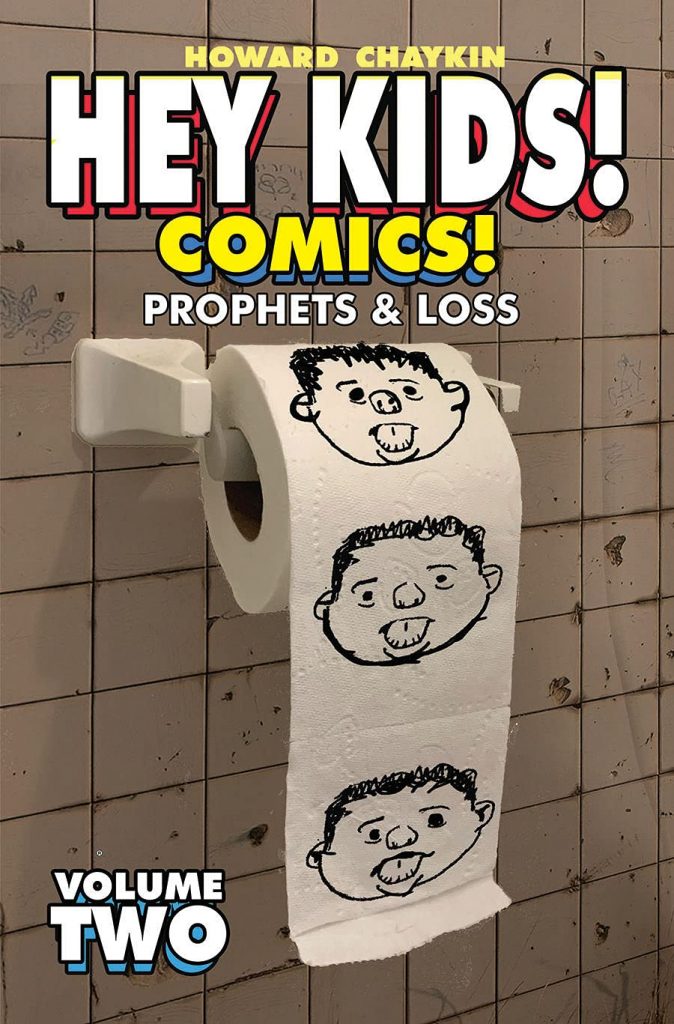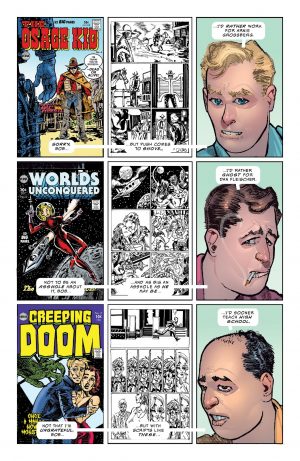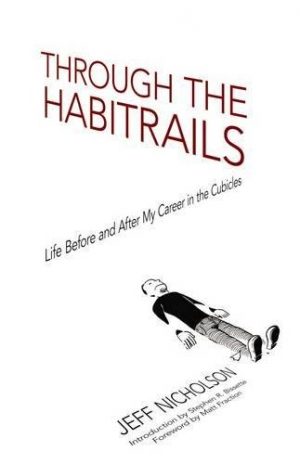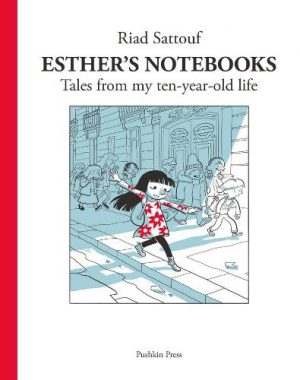Review by Frank Plowright
A second dose of Hey Kids! Comics! starts with three packed pages of portraits and accompanying brief lines of sardonic comment about over fifty people who’ll feature in the following six chapters. Readers with a physical copy are advised to keep a bookmark handy, while readers of the digital edition are going to find themselves scrolling up and down frequently.
They appear in another barbed look at the less than sparkling history of the American comics industry. However, the plot requires considerable knowledge of comics history for maximum impact. That’s apparent in the first chapter’s skit about the growth of EC comics in 1950s and how they were closed down by the advent of the Comics Code Authority. Chaykin knows his material so well, that segues and scenes that are obvious to him won’t always make sense to readers. Without knowing what it’s parodying, two pages quoting from an essay damning comics are just dry and without follow-up.
Chaykin’s parody comic covers were featured in Volume One. As seen on the sample art, they’re sometimes accompanied by page miniatures also, and while Chaykin doesn’t attempt to copy the exact style, from the layouts and panel compositions alone Al Williamson, Wally Wood and Bernard Kriegstein are recognisable. However, while the covers throughout are equally generic they have a greater prominence, which draws attention to them being dashed off. Otherwise, the art is constructed to be consistent with the previous volume, with Chaykin’s neat figures laid over digitally enhanced backgrounds, which makes for a busy look.
As before Chaykin uses composite creators Ray Clarke, Benita Heindel and Ted Whitman as the primary commentators, but they don’t appear as often as last time, which cuts an anchor as Chaykin skips through from the 1950s to the early 1980s. It leaves Hey Kids! more disjointed as there’s a far greater cast to cope with as Chaykin spins out the anecdotes he’s accumulated over the years. Given how Chaykin has pushed boundaries it’s interesting to note that the most shocking aspect of Prophet and Loss is the constant anti-semitism. Racism also features, but with far fewer African Americans working in the comics industry during the period covered, it doesn’t feature as often.
Taking considerable prominence is Noah Gitlin, Chaykin’s own stand-in, who, as might be expected, comes off rather better than most other industry personnel covered, presented as smart and cynical. That’s also the case for others, but while rude, distanced and offensive was a default personality last time, the stories featured were stronger, and Prophet and Loss lacks the same cohesion. It’s funny in places, and disturbing in others, but not as engrossing as last time around.





